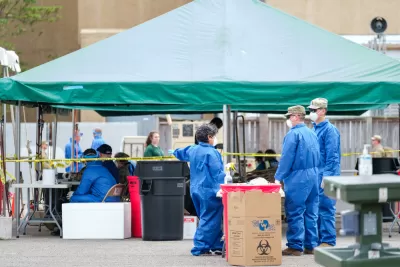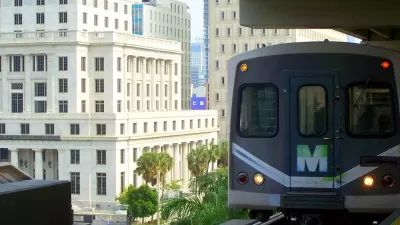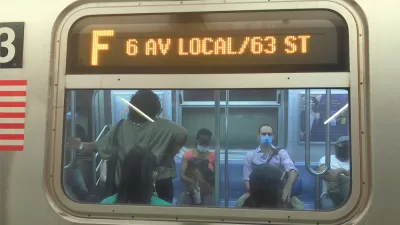Congressional leaders are discussing the shape and size of the next federal stimulus bill. The following critique argues that the next bill should do more to expand testing, contact tracing, and quarantine capacity at the state level.

Ben Adler takes a look forward at the likely shape of the next federal stimulus and makes a brutal assessment of the federal government's approach to the public health and economic crisis facing the country: "Congress remains perversely determined to treat the symptoms, rather than the illness."
Instead of addressing the public health crisis directly (the illness), according Adler, "the disaster that the next round of stimulus will address, according to media accounts, is the same as the last one: the financial losses to businesses and workers caused by the social distancing measures put in place to limit the spread of the new coronavirus."
While funding for hospitals and an economic safety net for businesses indirectly supports the fight against the coronavirus, according to Adler, restarting the economy and defeating the coronavirus will require testing and contact tracing capacity like those in place in South Korea. The United States hasn't even begun to build to build that capacity.
What would such a federal effort look like? For one thing, it would involve a lot more aid to state and local governments earmarked for the purpose. “It means a massive infusion at the state and local level, because the people who are going to do the testing, do the contact tracing, are all state and local people,” said Gregg Gonsalves, a professor of public health at Yale. “The last bill has $150 billion to state and local governments, but they’re losing sales and income tax revenue, so $150 billion doesn’t even begin to meet the lost revenue gap. Money has to flow to the states to do the shoe leather epidemiology.”
More details on how the current federal efforts are falling short of treating the illness, rather than treating the cure, follow in the source article.
FULL STORY: Bailouts Won’t Save the Economy. More Coronavirus Tests Will.

Trump Administration Could Effectively End Housing Voucher Program
Federal officials are eyeing major cuts to the Section 8 program that helps millions of low-income households pay rent.

Planetizen Federal Action Tracker
A weekly monitor of how Trump’s orders and actions are impacting planners and planning in America.

Ken Jennings Launches Transit Web Series
The Jeopardy champ wants you to ride public transit.

Driving Equity and Clean Air: California Invests in Greener School Transportation
California has awarded $500 million to fund 1,000 zero-emission school buses and chargers for educational agencies as part of its effort to reduce pollution, improve student health, and accelerate the transition to clean transportation.

Congress Moves to End Reconnecting Communities and Related Grants
The House Transportation and Infrastructure Committee moved to rescind funding for the Neighborhood Equity and Access program, which funds highway removals, freeway caps, transit projects, pedestrian infrastructure, and more.

From Throughway to Public Space: Taking Back the American Street
How the Covid-19 pandemic taught us new ways to reclaim city streets from cars.
Urban Design for Planners 1: Software Tools
This six-course series explores essential urban design concepts using open source software and equips planners with the tools they need to participate fully in the urban design process.
Planning for Universal Design
Learn the tools for implementing Universal Design in planning regulations.
Heyer Gruel & Associates PA
Ada County Highway District
Institute for Housing and Urban Development Studies (IHS)
City of Grandview
Harvard GSD Executive Education
Toledo-Lucas County Plan Commissions
Salt Lake City
NYU Wagner Graduate School of Public Service





























